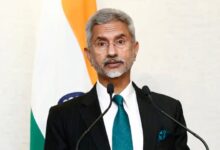Japan To Offer Military Assistance To Like-Minded Nations To Counter China

- The money will come from a different source than the Yen 570,9 billion that Tokyo gives to developing countries for economic and social growth.
- Under agreements already in place, Japan had given Southeast Asian countries like the Philippines, Malaysia, and Indonesia coastguard ships and tools for monitoring the sea.
Japan has come up with a new plan to give military aid to “like-minded” countries, especially in Asia. It wants to increase its power in the Indo-Pacific region to counter China’s aggressive actions over Taiwan and the South China Sea.
The guidelines that Tokyo announced at the beginning of the month included a new program to strengthen the militaries of countries with similar values by giving “official security assistance.” This is a change from its previous policy of not using development aid for military purposes other than disaster relief, which was reported by the Japan Times.
A source said that the Philippines will be one of the first countries to get help from the Overseas Security Assistance (OSA) program. Malaysia, Bangladesh, and Fiji are also being considered.
As a part of the Quad alliance, which also includes the US, India, and Australia, Japan is working hard to implement the Indo-Pacific strategy, which China says is meant to stop its rise.
The South China Morning Post in Hong Kong reported on Thursday that Tokyo’s decision to use foreign aid for military purposes is a “paradigm shift,” but it won’t cause an arms race in Asia.
It was said that the move will not only improve the defense powers of Asian countries in a time of “changing security dynamics,” but it will also make Japan’s defense sector more competitive.
Japan’s new strategy of giving defense help to its neighbors was announced after Foreign Minister Yoshimasa Hayashi went to China this month.
When he met with Hayashi on April 2, Chinese Foreign Minister Qin Gang said that Japan shouldn’t “help a villain do bad things.” He was probably talking about how close ties Tokyo has with Washington.
This was Japan’s Foreign Minister’s first trip to China since 2019.
China and Japan have been fighting over empty islands in the East China Sea for a long time. The islands are controlled by Japan, but China says they belong to them.
Japan calls the islands the Senkakus, while China calls them the Diaoyu.
Taiwan also claims the islands, but it has made deals with Japan to avoid a fight because Tokyo and Taipei have strong defense ties.
The Japanese ministry said that the goal of Tokyo’s new plan is to “contribute to the creation of a desirable security environment for Japan” while keeping Japan’s “basic principles as a peaceful nation.”
The OSA is being presented as an expansion of Japan’s official development assistance (ODA), which is one of the biggest foreign aid programs in the world, to cover projects “for the benefit of armed forces and other related organizations,” according to a report in the Japan Times.
Tokyo is moving away from a strict non-military approach to its relationships with its neighbors and trying to make its vision of a Free and Open Indo-Pacific (FOIP) a reality, which is when the new framework was announced.
The Japanese government has set aside two billion Japanese Yen ($15 million) for OSA in its budget for fiscal year 2023. The money will come from a different source than the Yen 570,9 billion that Tokyo gives to developing countries for economic and social growth.
Even though this year’s OSA budget is small compared to ODA funds, experts say the decision to start the program is important because it is another step in Japan’s move toward a more robust and proactive defense posture, which could give it more freedom in defense transfers in the long run. This was reported in the Japan Times.
Tokyo has usually been careful about sending arms abroad and sharing military technology.
Stephen Nagy, a professor of politics and international studies at Tokyo’s International Christian University, said that Japan’s choice was made because of “changing security dynamics in the region.”
Nagy told the Post, “I don’t see this as a major change in international aid. Instead, I see it as a continuation of the use of strategic partnerships to help like-minded countries build their security capabilities.”
Under agreements already in place, Japan had given Southeast Asian countries like the Philippines, Malaysia, and Indonesia coastguard ships and tools for monitoring the sea.







Facebook Comments